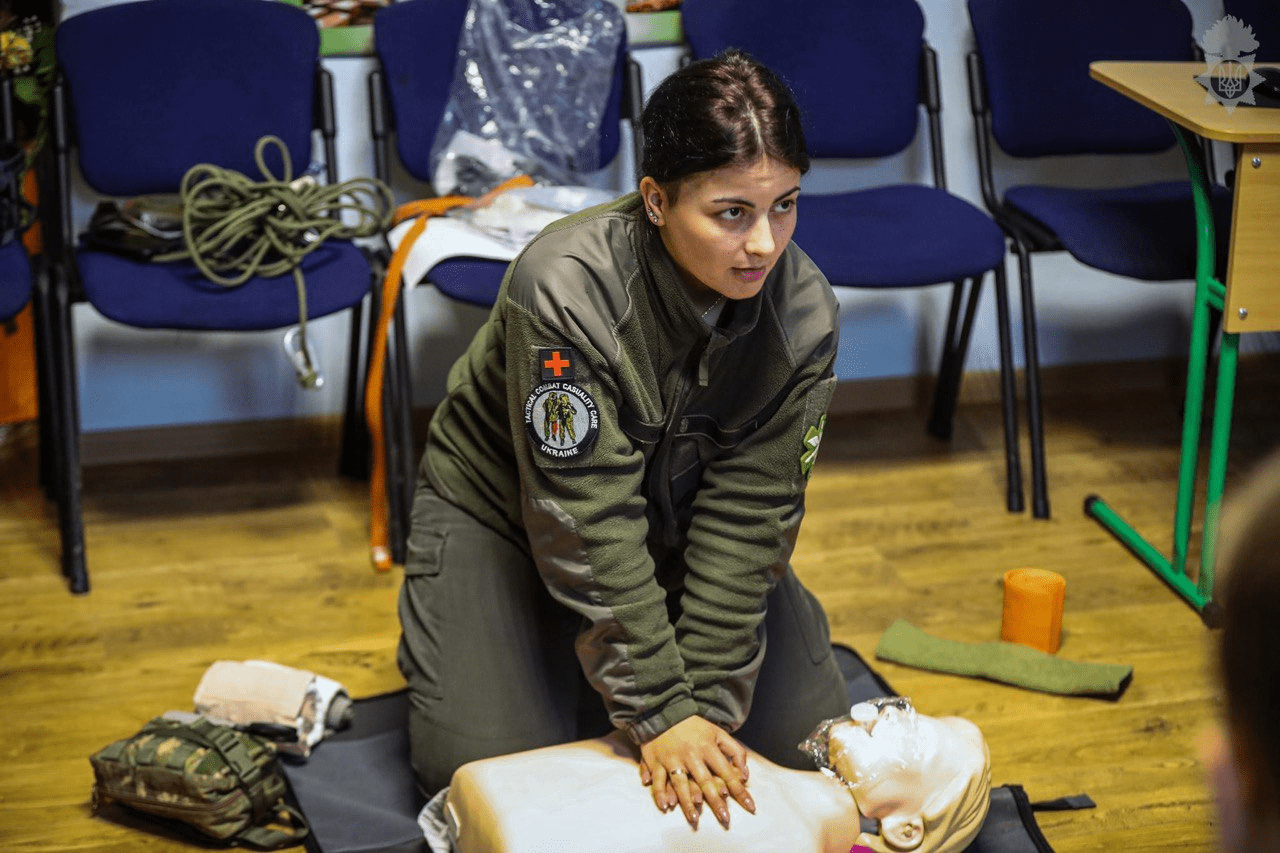She is a young woman, the mother of a 4-month-old daughter, a recent graduate of the medical university. But at the age of 24, she is a combatant, a tactical medicine instructor. Khrystyna Chmil gained her experience not in snow-white hospital wards, but under bullets on the front line. The war became her teacher. Her both parents are military. Therefore, after graduating from the medical university, she decided to join the army. In 2020, she signed a contract with the National Guard. She passed several trainings in Zolochiv at the training center. She became the commander of the department, received the rank of junior sergeant.
The war found Khrystyna on the front line in Pokrovsk, Donetsk region. Bloody battles began. They immediately began to pack first-aid kits and leave either near Mariinka or Volnovakha. They took away the wounded from the first line.
In civilian medicine, you can calmly assess the circumstances and plan your actions. The pace is different here. Here you provide help in combat conditions, when something flies overhead, or something can explode from the side. Tactical medicine is work under fire. Here it is not so easy to approach the wounded. It may take an hour, even half a day, or several days before you can pick the wounded. For some, this time can be critical.
Tactical medicine is always a great danger, different conditions for saving a person. It is always a crisis situation in which you have to make a fast decision: who to crawl to immediately, who can still be saved, and who, unfortunately, cannot be helped. There are no ambulances here to transport a person, no narrow specialists – here you have to know everything yourself.
Physical training is also important, especially when you have to pull the wounded out of shelling or carry them on stretchers. When an armoured personnel carrier approaches and takes away the wounded, it is necessary to accompany it and stabilize the situation on the way. Sometimes you have to wait for evacuation, it is not immediately possible to transfer the wounded away from the combat zone, so you have to constantly monitor their condition in order to transport them. Tactical medicine is a challenge, it is medical versatility.
The most difficult thing in the work of a doctor is to lose people. It is not easy to come to terms with this. It is difficult not to transfer such an emotional state to loved ones. Likewise, it is not easy to see mental breakdowns. Everyone reacts differently to shelling and danger. There are no people who are completely indifferent. Doctors are usually better prepared for stressful situations because they know how to act. Other people can simply fall into a stupor, panic.
Tactical medicine is closely related to tactical training. That is why military doctors are trained in military educational institutions. In Ukraine, they are taught according to NATO standards. Firstly, doctors help those who show signs of life. Doctors tentatively consider those who lie motionless to be dead. They return later to those who are unconscious. This is the cruel truth of war.
There is one rule in war: either you or they. No international conventions work here. Doctors are the first to be killed in this war. Russians do not follow any international laws.
